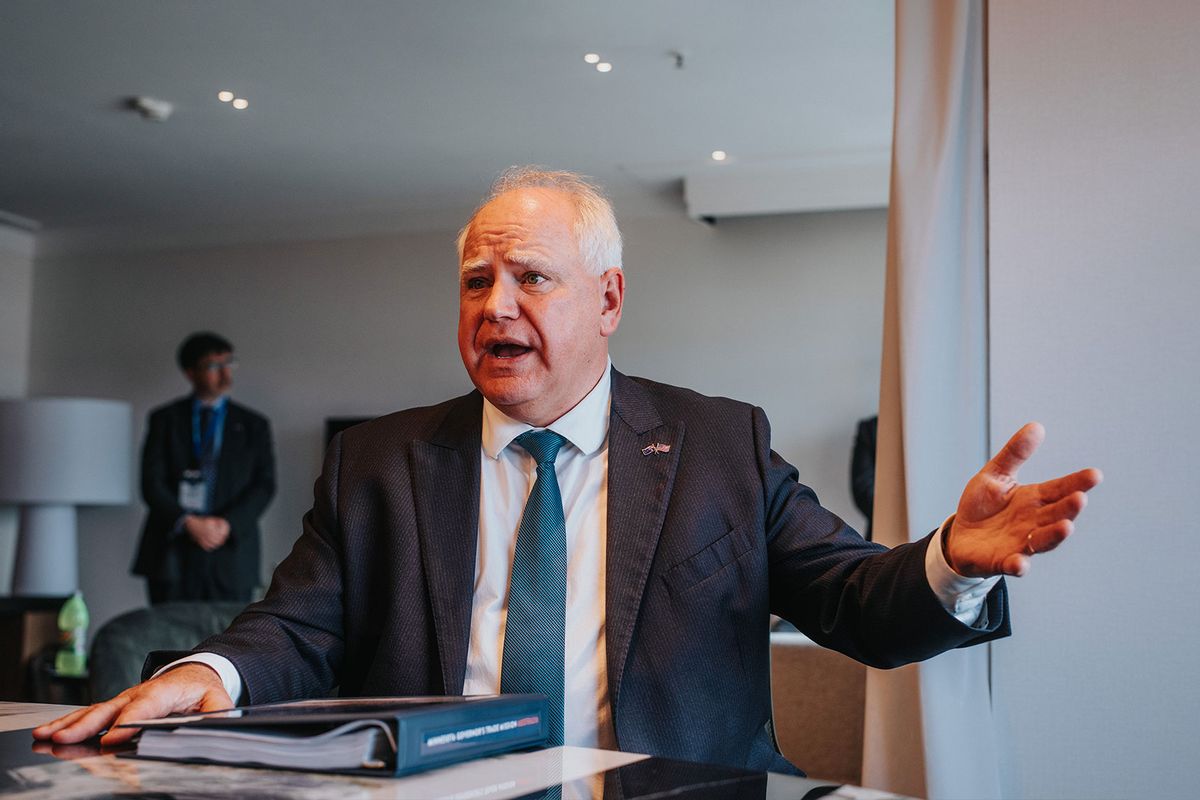Minnesota Gov. Tim Walz's relationship with China began when he taught English and American history in the southern city of Foshan more than 30 years ago. Since then, he has frequently criticized the Chinese government over its violent repression of pro-democracy campaigners, but that hasn't stopped Republicans from trying to falsely paint Vice President Kamala Harris' running mate as an apologist for tyranny.
"Communist China is very happy with @GovTimWalz as Kamala's VP pick. No one is more pro-China than Marxist Walz," wrote Donald Trump foreign policy advisor Richard Grenell on X.
Sen. Tom Cotton, R-Arkansas, said that Walz owed American an explanation "about his unusual, 35-year relationship with Communist China."
It's a play the GOP hopes will resonate with the increasing number of Americans who view China as "the enemy," though the charges may fail to stick to Walz's rather conventional, if not especially hawkish views on the US-China relationship. Walz previously backed Hong Kong's pro-democracy protests, earning praise from leading activist Jeffrey Ngo; sat on a committee focused on scrutinizing human rights violations in China; urged China to "ensure the preservation of traditional Tibetan culture"; dand expressed the need "to stand firm" on China's maritime expansion into the South China Sea.
At the same time, he said in a 2016 interview, there are "many areas of cooperation that we can work on." Unlike the sometimes fevered tone that now accompanies talk of the US-China rivalry, Walz suggested at the time that the two countries could cooperate on issues of global import, such as trade and climate change. He has also spoken warmly of his experience with the Chinese people after multiple visits largely centered on education and cultural exchange.
“If they had the proper leadership, there are no limits on what they could accomplish,” he told Nebraska newspaper The Star-Herald in 1990. “They are such kind, generous, capable people. They just gave and gave and gave to me. Going there was one of the best things I have ever done.”
We need your help to stay independent
Walz visited China for the first time in 1989 to teach in Foshan through Harvard University's WorldTeach program. His arrival coincided with the 1989 Tiananmen Square protests and government crackdown, an event that he said left a lasting impression. “It was my belief at that time that the diplomacy was going to happen on many levels, certainly people to people, and the opportunity to be in a Chinese high school at that critical time seemed to me to be really important,” Walz later said in congressional testimony.
In the following years, Walz returned to China almost every summer with students he taught in Nebraska and Minnesota, even spending his honeymoon there with his wife Gwen, who helped him set up a company to facilitate the travel.
Walz's comments about China policy before the Trump presidency represented the prevailing attitude at the time, which was considerably less hostile, one international relations expert told NBC News.
“Walz’s approach to China-related issues on the campaign trail will probably be less directly related to his earlier experiences and much more reflective of whatever broader approach to foreign policy and U.S.-China relations that Vice President Kamala Harris adopts,” Austin Strange, an assistant professor of international relations at the University of Hong Kong, told the outlet.



Shares